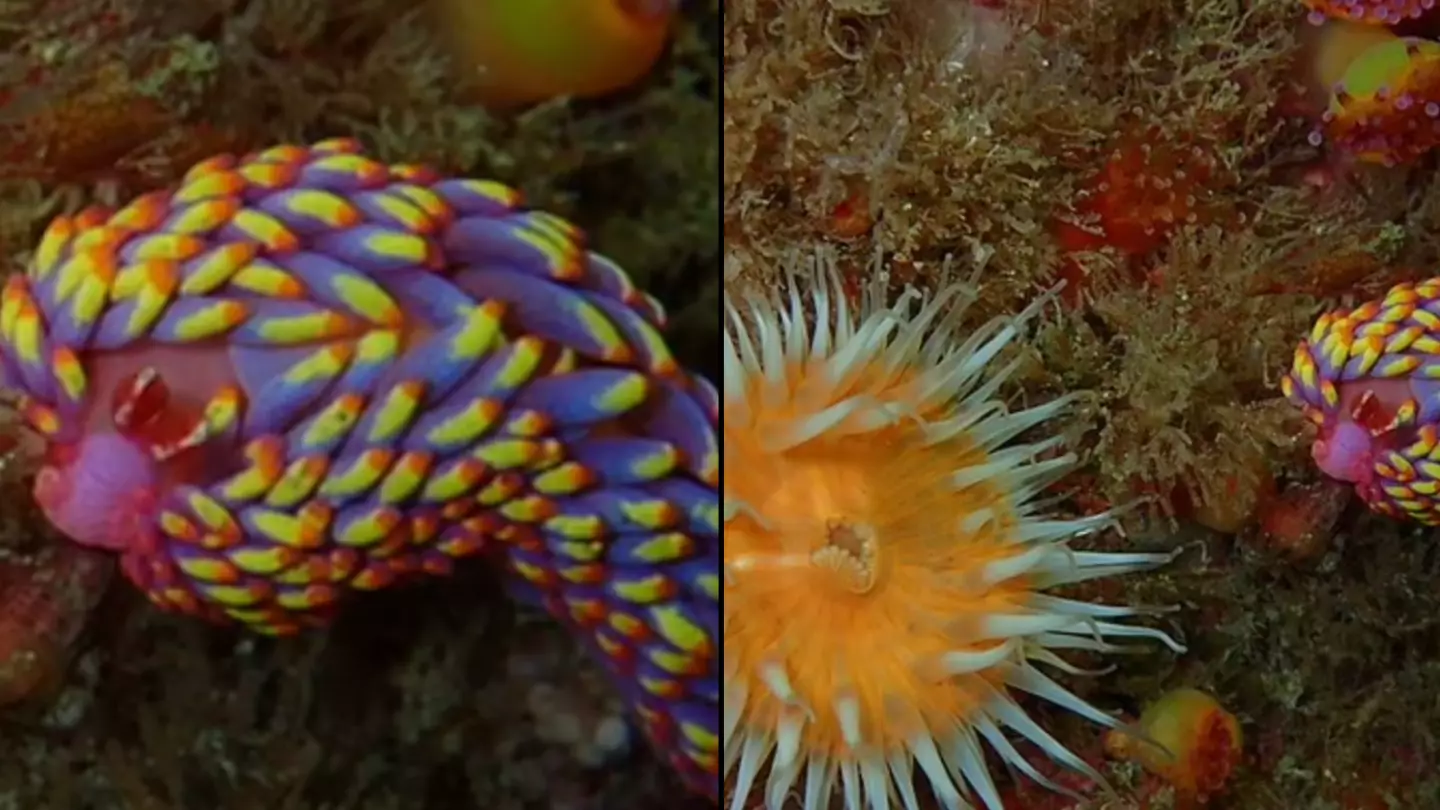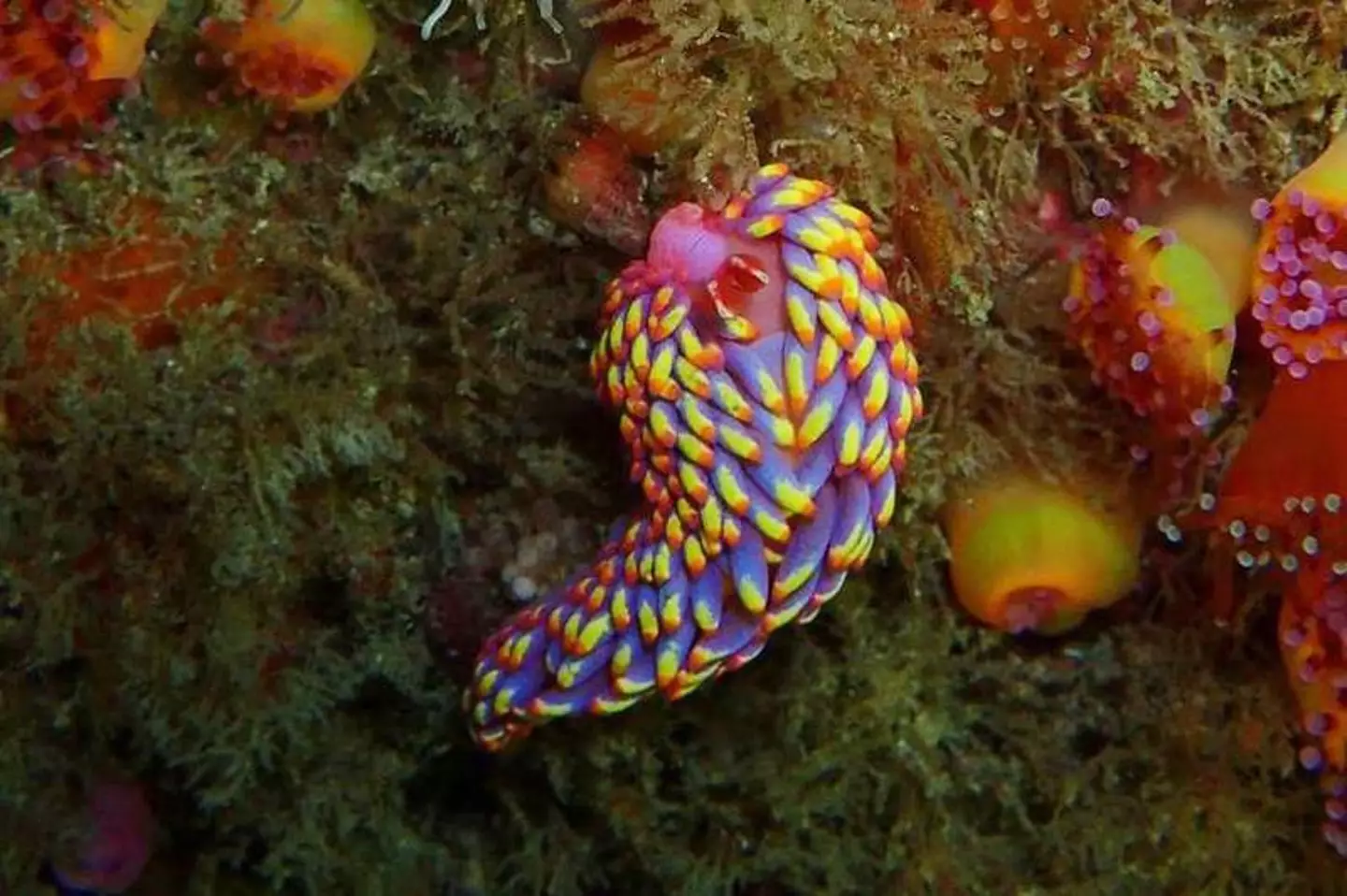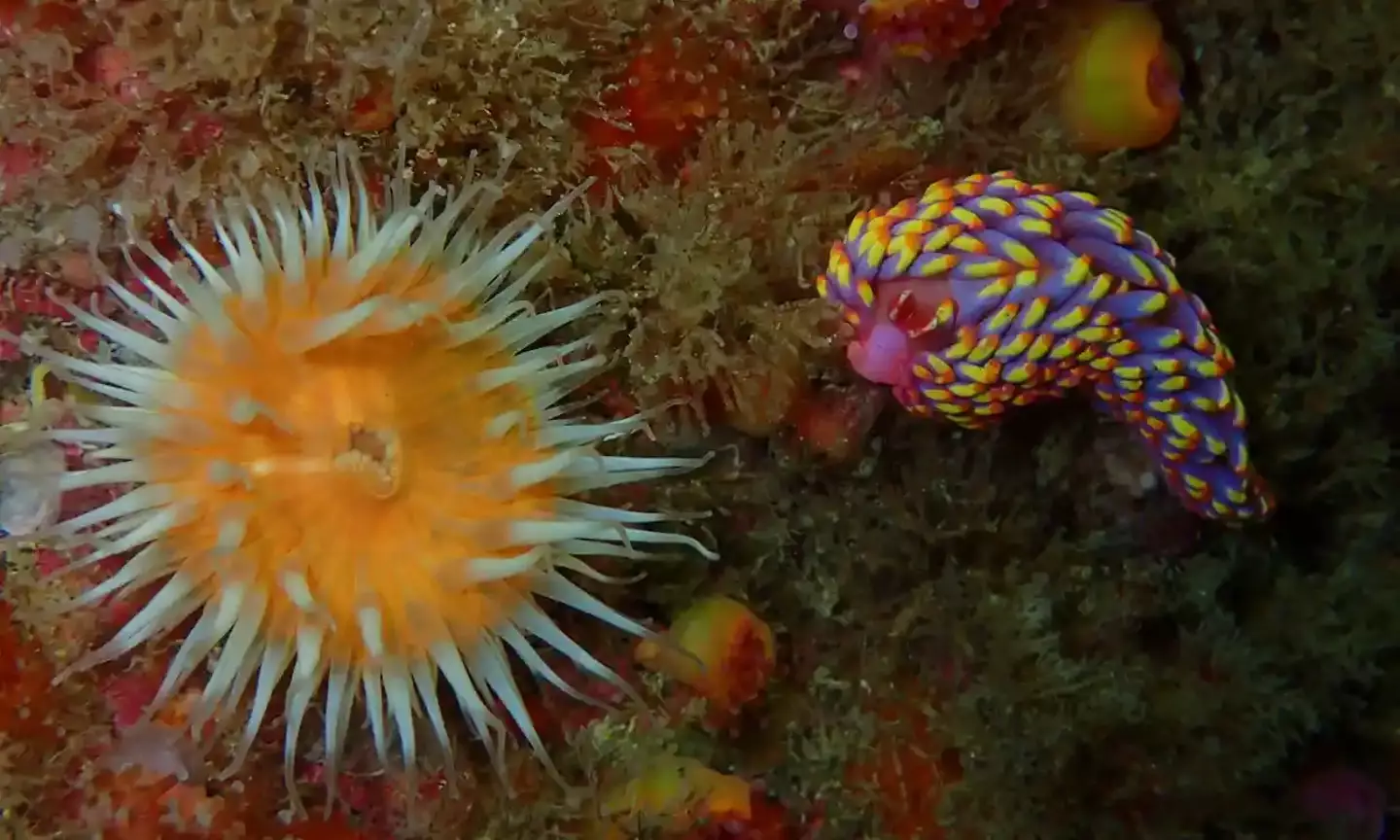
A rare multi-coloured sea slug has been spotted for the first time in UK waters, with conservationists hailing the discovery an ‘incredible’ find.
The Babakina anadoni, an extremely rare species of sea slug, was found by a diver off the coast of the Isles of Scilly on 28 July.
According to the Cornwall Wildlife Trust and the Isles of Scilly Wildlife Trust, the slug has only ever been recorded a number of times along the west coast of Spain and elsewhere in the Atlantic.
However, until now, it has never been found in UK waters.
Advert
Matt Slater, marine conservation officer at Cornwall Wildlife Trust and co-ordinator of the Seasearch programme for Cornwall and the Isles of Scilly, said: "What an incredible find!
"We were extremely excited to hear about the sighting of this colourful nudibranch - a species that we believe has never been recorded in the UK before.

"Records like this from our Seasearch divers are vital in helping us understand and better protect our seas."
Normally found in warm sea, Babakina anadoni feeds on stinging cells from Hydroids, small animals related to jellyfish, and also has red receptors known as 'rhinophores' to feel its surroundings.
The slug's gut can extend into each of its cerata, which are finger-like structures where it processes the food.
Slater told the Daily Mail: "It's incredible that they don’t get stung themselves when they process the stinging cells."
Lucy McRobert, communications manager at Isles of Scilly Wildlife Trust, added: "We never cease to be amazed at the wildlife turning up in Scillonian waters.
"From rare and beautiful nudibranchs to violet sea snails to great whales like humpbacks and fins, every time we dive beneath the surface we learn and see something new."

The colourful 2cm-long creature was spotted by Seasearch volunteer by Allen Murray during the Wildlife Trust’s National Marine Week - who admitted he didn't actually recognise the species initially.
Speaking to the Mail, he recalled: "I just knew that it wasn’t something I’d seen before or recognised, and nor did anyone else on the boat when I surfaced.
"We then checked our ID guides for the UK when we got back to land but without success.
"But one of the group had a vague recollection of having seen something similar on a Facebook discussion group and did some digging and tentatively ID’d it as Babakina."